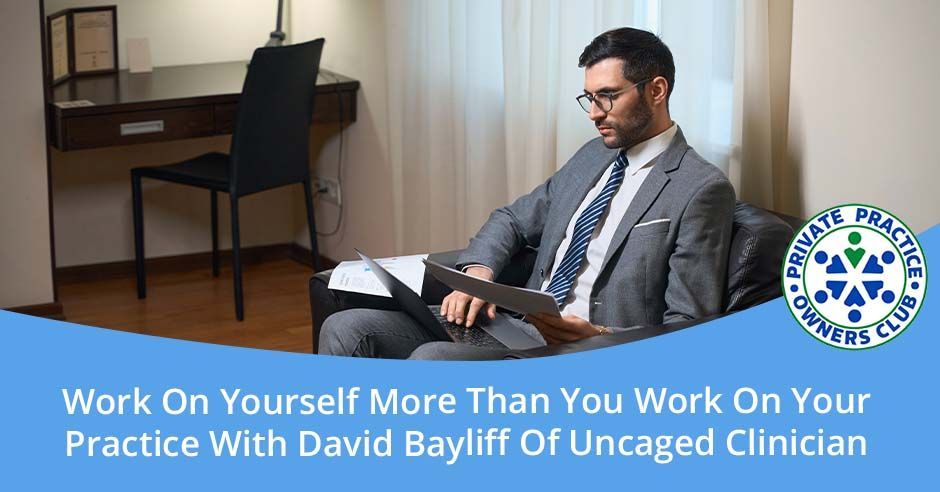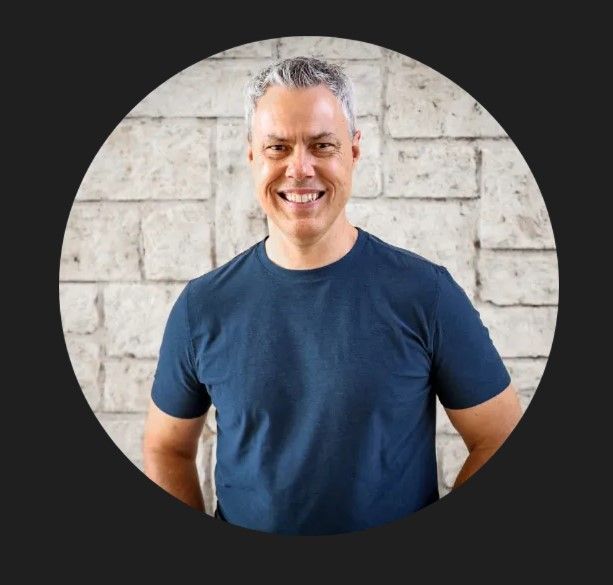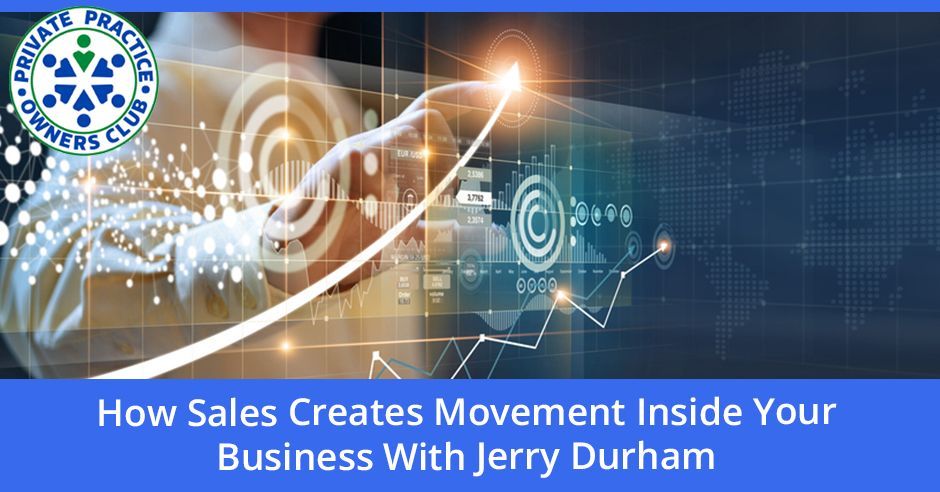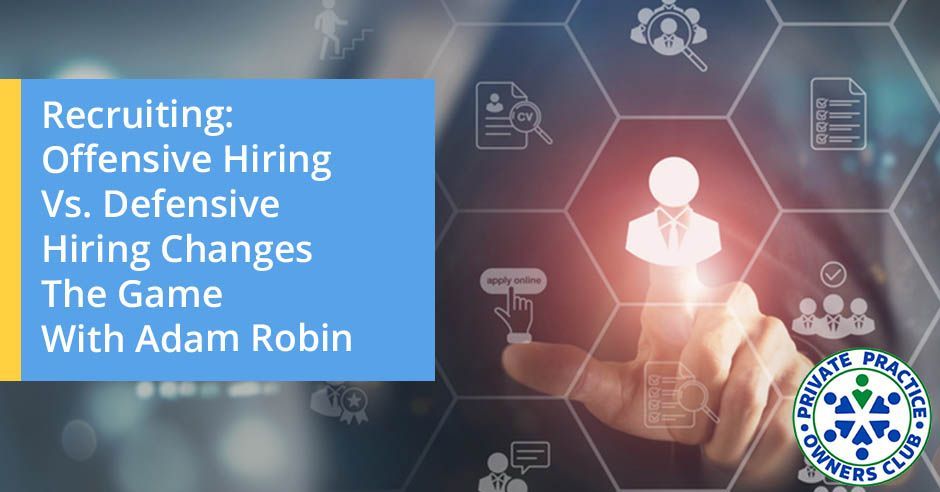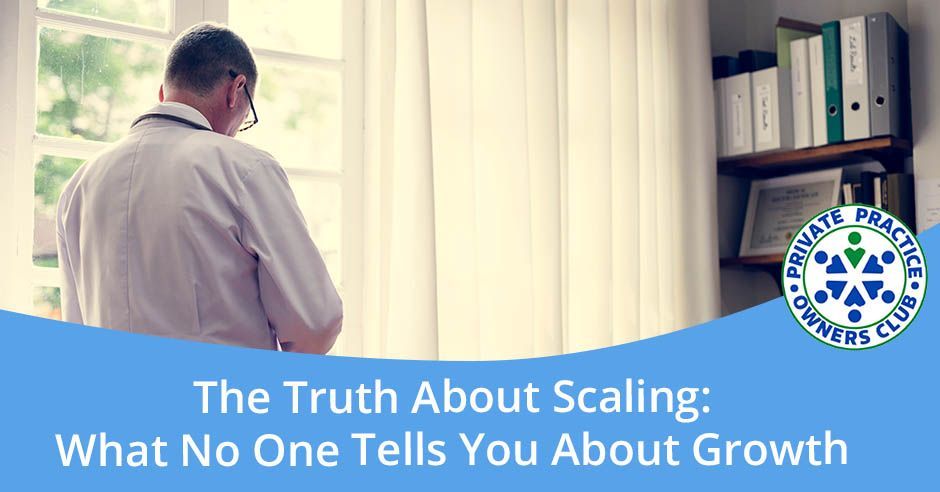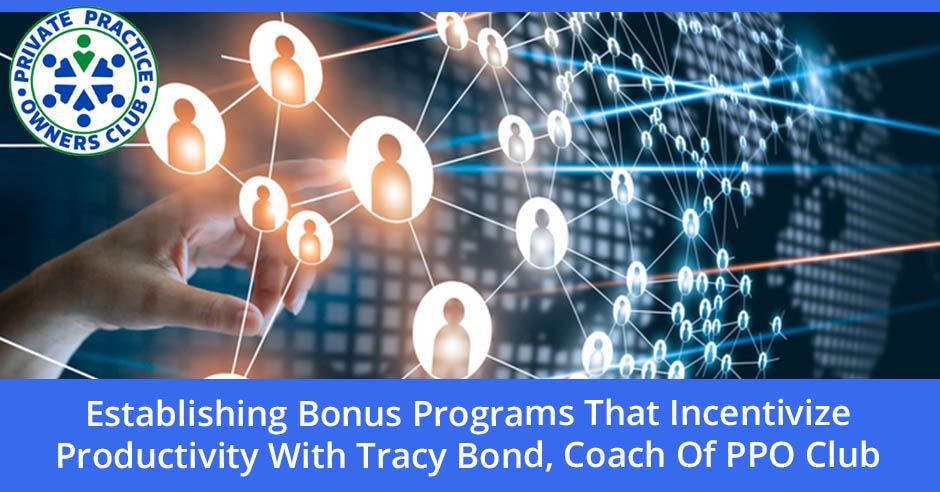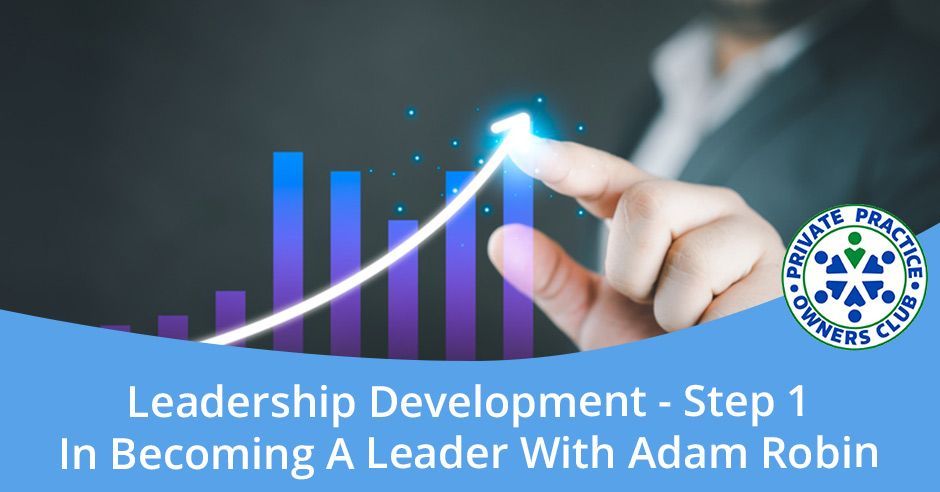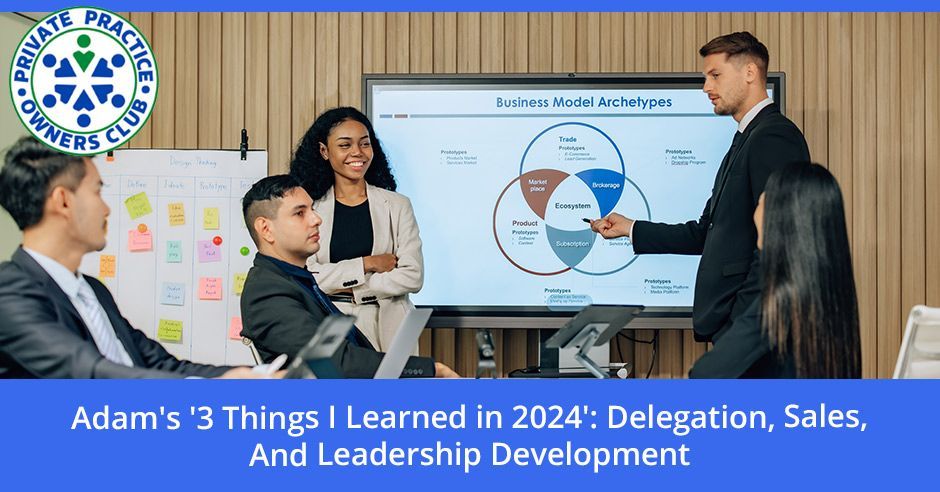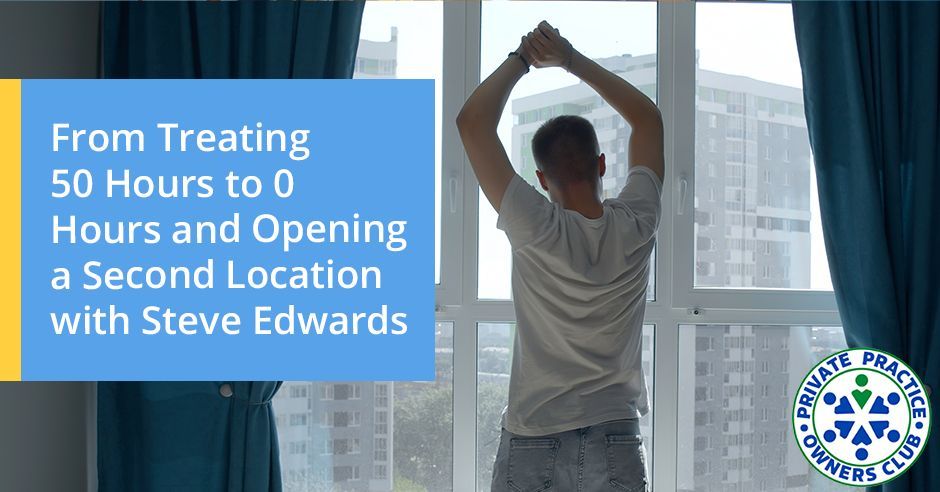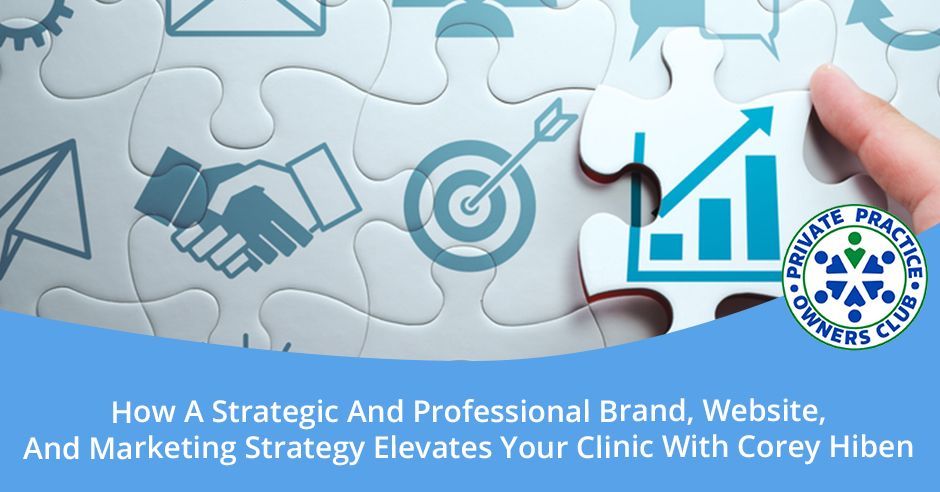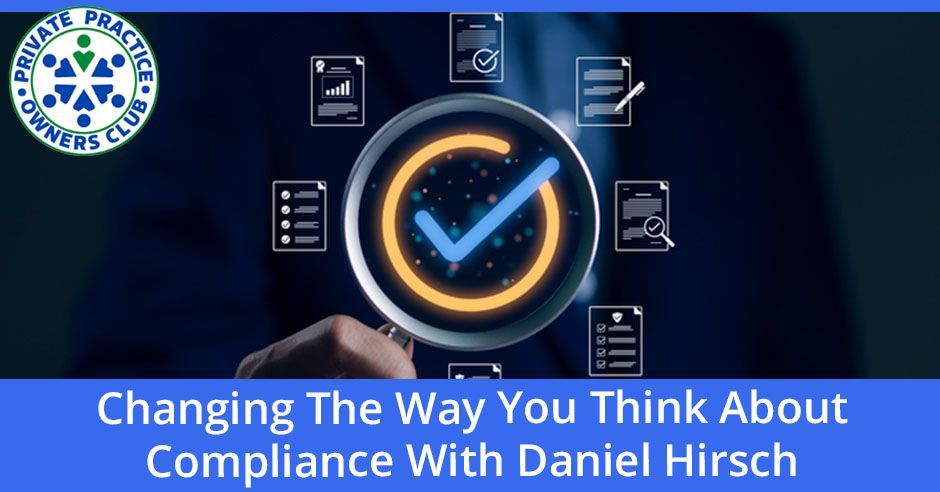This episode will revolutionize your mindset, shifting you from just "being busy" to becoming truly intentional, allowing you to build a more fulfilling and impactful business.
Get ready for an incredible episode as Adam sits down with David Bayliff, a pioneer in mobile physical therapy and a coach for private practice owners. They explore the power of intentionality, personal growth, and redefining success.
Here are some highlights from the episode:
- David shares his awe-inspiring journey from corporate PT to pioneering mobile cash-based therapy.
- Discover the crucial distinction between being "busy" and being "productive," and understand why it’s essential to focus on making meaningful progress in your business.
- Adam and David delve into the concept of "Be, Do, Have," revealing how transforming yourself as a person can propel you to greater success in both business and life.
- They also explore the idea of moving from chasing success to creating a life and practice that brings long-term fulfillment instead of burnout. Get ready to be inspired and motivated!
Don't miss " Work On Yourself More Than You Work On Your Practice with David Bayliff of Uncaged Clinician" – it's packed with valuable insights for private practice owners!
Want to talk about how we can help you with your private practice, or have a question you want to ask? Book a call with Adam - https://calendly.com/adamrobin/dr-adam-s-30-minute-connection
Love the show? Subscribe, rate, review, and share!
https://ppoclub.com
---
Listen to the podcast here
Work On Yourself More Than You Work On Your Practice With David Bayliff Of Uncaged Clinician
In this episode, I'm sharing a recording of a Facebook Live that I recently completed with my friend David Bayliff from
Uncaged Clinician. If you guys don't know who David is. David is a Business Coach that I've been a big fan of ever since I was in PT school. I remember being in my apartment studying for Anatomy, listening to this guy talk about cash-pay services and doing travel therapy.
He was a big influence on me as I was in PT school and pioneered a lot of the ways that I think about going after what you want. Me and David hit it off pretty well on this recording. I believe that if you build yourself, believe in yourself, and work on yourself harder than you work on your business, you will get everything you've ever wanted out of your business and in your life. We talk a lot about that on this show. Tune in and enjoy the show.
---
I'm here with my friend
David. David, what's up? How are you doing?
What is going on? It's a good day when I get to spend some time with you. I got up this morning and went to work out with the men's group from church and the first song played was Going To Have A Good Day. I was like, “That's right. I'm going to talk to my man Adam today. It's going to be good.”
I woke up excited for this. I always start off with a little bit of a story about how we met. I've been following David since I was in PT school. I remember studying Anatomy, being on the phone, looking at Facebook and watching David hammer out some value, serving other people, and helping business owners and I became a little bit of a fan. I reached out to David. We started chatting and we had an awesome conversation. We did an episode together. I thought it would be super cool to bring you on, introduce you to my people, learn your story, and see if we can have a good conversation. Does that work for you?
Absolutely. I remember that first conversation. I knew within 45 seconds, “I like this dude. I connect with this guy.” It's a pleasure being on this journey with you.
Who Is David Bayliff?
Can you start by telling me a little bit about who you are and what you do?
I’m David Bayliff. Being from the South, I've always mispronounced my last name. My wife told me that I pronounce it as if it's spelled Bayloff, but it's Bayliff. That's my lazy tongue and lips. I’m originally from North Carolina. I’ve been in Arizona, Phoenix, for many years now. I have always practiced in Arizona and worked in the corporate setting for nineteen years. In 2013, I started my own mobile practice cash-based. I did that for a good number of years. I still have a few clients in that, but I do some mentoring and coaching now. Part of my past is growing up playing tennis at Wake Forest and enjoying being outside. I moved to Arizona because I love sunshine and I love heat. I don't like humidity and I don't like bugs.
Arizona checked off all those boxes and that's why I ended up out here or how I ended up out here. I have a beautiful wife and two kids. One is graduated college. Another one is going to be a junior down at the University of Arizona. She's studying Aerospace Engineering. I don't know where she got those smarts from. It wasn't for me, but maybe they were passed through from one of my grandfathers who was in that world. I’m very proud of both of my kids. You probably tell people that you don't really work. I know you have some busy days and they might get you a little bit tired, but I know that what you do, you don't look at it as work.
For a long time, I've told people, “I don't work. I have fun.” In fact, when I was working in the clinics, I would tell people, “When I go home, that's when my job begins,” when my kids were little. I look at what I do now. I'm blessed and thankful that the Lord has given me the opportunity to have conversations with people every day and have fun. That's what I enjoy. I’m trying to mentor people, be a disciple to people, and hopefully change people's lives. Maybe, if I'm lucky, I can have an impact on the healthcare profession overall.
Being Busy Vs. Being Intentional
You mentioned busy days. I had a conversation with one of our coaches and it was one of those casual conversations and we talked about the idea of being busy. There's a difference between being busy on paper versus being busy in the mind. A lot of the time, I'm super busy, but I don't feel like it drains me. I feel like I can work from a place of choice, from a place of things that fill my cup and inspire me. That's a whole different type of type of work.
I was talking to a good friend of mine. You had him on the show, and it was about this topic, being busy. There's a difference between being busy and being productive. When you can fill your day with productivity, your energy levels are going to remain high. You can do some busy stuff that doesn't take a whole lot of mental or physical power.
When you feel like you're just doing things, that's totally different than if you're being intentional. I've learned to be able to look at my day and instead of judging my day by, “Did I stay busy all day? Was I intentional?” That's something that a coach helped me with. At the end of the day, it’s to write up a film review. “Did I move the needle today? What didn't go well? What am I going to do tomorrow?” When I started looking at, “Can I be intentional today?” sometimes, I might get two things done, and it totally changed my perspective versus when I worried about, “Did I stay going after it all day long?”
I knew that intentionality was things that probably in some way helped to move the needle. That's what's more important. It’s moving that needle, whatever that needle is for you, but moving that needle. I think looking at things with intentionality, it's amazing how it leaves a lot of energy in the tank for you so that you don't sit down at the dinner table at night and think, “Thank goodness I finally get to sit down.”
There's so much I can go into on that. I had an awesome conversation with a client, and we talked about the idea of being intentional in designing your work, being the designer of what you want to do, and pre-designing what you want to do. He was the guy. He has got a nice clinic and a nice business, and he is like, “I go into work, and I'm putting out fires. I check Facebook and I'm looking at the bank account. I'm all over the place. I don't have a plan.”
What is this saying? It's like, “Experience is not our greatest teacher. It's the experience that we reflect on and debrief.” That is our greatest teacher. We talked about this idea that you, as the owner or the designer of your life or your business, put input into the business to try to fix it, to try to create it, and that creates the outcome, but who's working on you so that you can be the person that you need to be, to create the change that you want to create the outcome that you want?
I love that you posed that question because, if I may go here, I had a meeting with one of the pastors from my church. His very first sermon that he gave at church was about, “It's not the here and you want to go there. It's not about what are the things I need to do, but it's who do I need to be?” I reminded him of that. I said, “Thank you for that sermon because I've used that principle with many of my people.”
It's not about the things you need to do, but it's who you need to be.
You’re actually right, Adam. As we go through our day, as we go through life or as we're transitioning from an identity, or I don't want to say an identity, the arena of, I know a lot of the people who you work with they're achieving some great things as maybe as business owners, but at one point they were the implementers. As they go through that transition from being an implementer to now being a higher level business owner, it's easy and I know you deal with these of people saying, “What are the tactics?”
What holds people back from getting there isn't that they don't know the tactics, but it's that they don't go through the work of, “Who do I need to be to get up there?” I love that you said that, and something that I reflect on every day is, “How do I need to be today? Who do I need to be?” When you start answering that question about the things that we want to achieve, we end up not only achieving those things but also going further because we're working on that foundation that's going to truly get us there.
Whereas if we think about the tactics of like, “What do I need to do?” we're going to do that thing, but going back to that saying of if you aim for the moon or aim for the stars, you'll at least hit the moon. If you focus on only trying to hit the moon, you might hit the moon, but there's so much more out there. When you think about, “Who do I need to be?” maybe you thought you were aiming for the moon, but next thing you know, you're on your way to Mars.
I had a mentor break it down to me in a way that with this framework, it's be, do, have, “Who do I need to become so that I can do the thing so that I need to do that I can have the thing that I want?” You can reverse-engineer that. It's like, “What do I want? What do I need to do? Who do I need to become?” I need to be a little bit smarter, wiser, and more patient. I need to communicate a little bit better. I have to be more disciplined. I have to have more self-worth and all those things.
Guilty as charged. I'm sure you've made this mistake, too. What people typically would think is the opposite. We think it's do, have, be. It's like, “I'll do the thing so I can have it, and then once I have it, then I'll be ready for the thing.” We have to eliminate the if, then in the equation. That's the type of work that doesn't pay off instantly. That's not that instant gratification. It's that long-term investment in yourself that never fades. That's the investment you give to your children and the people around you. This is why we hit it off so well. We could go deep on this.
You are like the better-looking twin brother of mine.
You’re the wiser. You were talking about that instant gratification. I see that often. People want their end goal and they want it right now. They want it ten minutes ago. There are ways to hit the moon very quickly. What I've noticed is that those people who get to the moon very quickly, as they're standing on the moon or like, “I made it here,” are never satisfied. They're never fulfilled. There is a level of disappointment. They're finding fault in things.
All they can think about is like, “The money that I've spent. The money that I'm not making.” A lot of times, and I know you've probably dealt with this, too, with people, is that you didn't ask them, “Look at the money you're making right now. Did you ever make that money at the job?” They're like, “Not even close.” “What are you unhappy about?” It's because when you get something quickly and you don't sweat for it, there is that lack of appreciation.
The Gap And The Gain
Have you ever read any of Dan Sullivan's stuff?
I’ve read a little bit of his. I know I've got a couple of his books somewhere, but I'm horrible at remembering authors or names of books. I know I have 1 or 2 of his books.
He wrote a book calledThe Gap In The Game. You're living the life. You wake up every day, and you're doing your thing. You're going to work. You're doing the thing. Ideally, you're making some progress in life, either personally or financially, with your relationships. The whole book is surrounded by the question, like, “What are you comparing yourself to? Are you comparing yourself to the gap, which is from where you are to where you want to be?” That's a place of lack like, “I am not there yet. Therefore, I can't be happy.” You're never going to be happy because every time you get better, you're like chasing the horizon. Every time you get a little bit closer, the horizon gets a little bit further away.
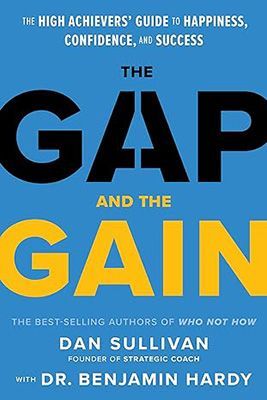
We have a tendency or the habit that we have to compare ourselves to the gap where we want to be like, “I want to be as cool as that guy.” You're never going to be there. Instead, if we can develop a habit of comparing ourselves to the game, look back two years ago and what we were doing. Look where you've come from now. When you can debrief your experience and realize how far you've come, you develop a new mindset of gratitude and optimism about life and what you're doing. It's a much better habit.
A lot of people forget to turn around and look at the progress that they've made. I've been guilty of that many times. It's interesting that you brought up The Gap In The Game. I did a talk at an event, and I referenced The Gap In The Game. The example that I gave, if I could share this real quickly with your people, is my wife and I, when we go to visit her family in Texas, we drive. It's sixteen hours.
We do it nonstop, from Arizona to Texas, heading in that direction. Probably for you being in Mississippi, heading to Texas, you're not going to hit too many hills. It's going to be pretty flat. We get up to New Mexico, get into Texas, and it's the same. You can see your dog running away for two weeks. Sixteen hours nonstop gets to be very long. Forty goes straight. There aren’t too many curves. What I've noticed is that when I focus on straight ahead, it's like, “Are we ever going to get there?”
I've noticed that when I turn my head side to side, meaning taking in the moment, looking in the rearview mirror, looking at what I've covered, enjoying my surroundings of where I am right now, that gap, that horizon does start to get a little bit closer. It makes that sixteen hours a lot more palatable because I'm enjoying where I'm in the moment. I certainly have been guilty many times, but we have trouble with enjoying where we are in the moment and appreciating the work that we've done in the moment.
We have trouble with enjoying where we are in the moment and appreciating the work that we've done in the moment.
I told you he was wise.
Speaking of that, in my opinion, or as my buddy, my best friend from high school back in North Carolina, he'd say in my humble but accurate opinion, the reason why I think people struggle with their gifts is because think about how we are conditioned through life. How are we rewarded? We are rewarded when we've worked hard for something when we've accomplished something. They are our gifts and they come to us naturally. We don't put value in them. That was simple, “I didn't have to work for that.”
We tend to poo poo our gifts. That's something that all of us should probably recognize like, “We should embrace that. Here's why we poo poo it. Let's embrace it.” They're your gifts for a reason. I've been guilty myself of self-deprecation or whatever it may be, of not acknowledging my gifts because isn't everybody like this? No, they're not. That was chasing the squirrel from Mississippi, North Carolina. We're going to chase squirrels, rabbits and possums.
We have no agenda here.
It's your show. We can do what we want.
What that reminds me of is what I'm doing right now is we're doing employee reviews with my leadership team. I'm meeting with them one-on-one, and basically, what we're doing is, we are grading each other, “How am I experiencing you from these values? How are you experiencing me from these? How can I be better for you?” What I'm realizing through that process is that we significantly underestimate how we impact each other in a positive way.
In the gifts that we have and the impact that we do make on the world, we don't see it because it's us doing our thing. It's hard to put a value on that unless others tell us. That's cool because that goes back to the idea of like, “When you have people in your life that you care about, make sure you tell them you love them and make sure you tell them how much you mean to them and why,” because it's important.
Let's bring that back to around to what you spoke about a minute ago of be, do, have. When we thirst for that accolade, if you will, now we're not placing our identity of who we need to be in the right place. It's a misplaced identity. Part of recognizing our own identity is where I think a lot of struggles and challenges come from for people. Imposter syndrome, comparison syndrome, things like that. It's a self-identity awareness. We expect our identity to come from a different source or our identity to come based on an accomplishment or something based on somebody else's impression. When we can eliminate that, know our true identity, and worry about those types of things.
Mobile Practice
I want to pivot a little because some of the people who are going to read this are physical therapists in the rehab space, and some of them are not. It's probably going to be my mom on here somewhere. What I think is cool about you and what you've done, and what I admire is that when I was going to school, I didn't know that people did mobile physical therapy, like mobile therapy. You stepped out of the clinic, drove to people's homes and did therapy on an outpatient basis. Not only that, but you did that and you were charging cash like you weren't even accepting insurance.
You dove into the mobile world and the cash-paced world before that was even a thing. You're a pioneer in that. I would love to know how you found that. What did you see that helped you identify that this was what you wanted to do? How did you develop the courage to go and do that? Nobody else was doing that.
I say this with fact and humility. There is a lot to learn from my story for people. I say that because as you talk to business owners, I talk to business owners, there a lot of ish that people struggle with. First, I want people to know this, including my mobile practice and what I do now, I've had five jobs. The only job that I ever sought was my very first job. Every other job after that found me, including being mobile, which goes back to what we talked about earlier, be, do, have.
Let's change the words a little bit. What is my identity? From my identity, what relationships do I build from that? From that, I'm able to serve my purpose. What people tend to do is the complete opposite, the opposite direction. How many times do you hear college kids say, “I'm trying to figure out my purpose?”
People try to figure out their purpose, and from that purpose, then they develop relationships, then from that, they say, “I can identify as this.” When you go in that direction, that's an upward direction, and there's a lot of weight on your shoulders. When you recognize your identity, develop relationships from that, and let that serve your purpose, that's downhill. That's going with gravity. That's a lot easier.
Where I'm going with that is that for people, when they recognize, “What are your gifts? How do you influence people?” and then be open to the possibility of maybe that arena changes. Your gift doesn't change. How you help people doesn't change, but the arena may change. I had a conversation with a guy and he said, “I do this in this area very well, but I don't know where else I could do this.”
He's a big Knicks fan. I said, “The New York Knicks, what do they do?” “They play basketball.” “Great. Where do they play basketball?” “Madison Square Garden.” “Awesome. When the New York Knicks come out here to Arizona and they're at the Footprint Center, what do they do?” “They play basketball.” “Awesome. When they go down the street to Brooklyn, what do they do?” “They play basketball.”
“When they go to Boston, to the Garden, what do they do?” “They play basketball.” “That’s right. The arena changes, but what they do doesn't change. Can you be open to the arena changing and you're still doing what you do? It may look differently, the surroundings might be different, but you're still doing what you do.” For me, knowing that, “This is who I am. This is what I do from that. A relationship was built with a local concierge doc who I was seeing a lot of her patients.” I'm getting to the answer here. From that, she said, “I've got a guy who has been to the clinics many times before. That's not his thing. He likes for people to come to him. Would you be willing to go to his house and see him?”
I'd never heard of that. This is 2011. I said, “Sure. I have a couple of mornings a week that I don't work. I could do that.” She's like, “He'll pay you cash.” I'm like, “That sounds great. I like cash. It's as good as money.” Yogi Berra or somebody like that said that. At the time, I was 45. I'm like, “I do not want to be a 50-year-old staff clinician. I have no life here like this. This stinks. I'm done with the system. I'm done with insurance and everything. I'm tired of most nights being here until 8:30,” because I didn't have a particular reason to rush home. I got to do something else, but I didn't know what.
The only thing I knew was PT, being in a clinic, and taking insurance. I had been down that road before as a director. I said, “I don't want to get in that fire again.” This relationship introduced me to someone who wanted me to come to them and pay me cash, which led to my purpose of, “I figured out what it is I need to do.”
I became aware of the fact that there are people out there who do want quality care and they want it to be about them on their timeline, whatever they want it to be about them, not about the system, not about what somebody else says that they can do. They want it to be about them and they're willing to pay for that. This was at a time when I knew one other buddy here in town who, about a year and a half prior started a cash-based practice.
I was like, “How is he doing that? People are paying?” I found out like, “People will pay,” then when I started thinking about going all in, I had all the naysayers from people in my deepest inner circle. From colleagues, other clinicians, anybody who I talked to, “You better take insurance,” because they were used to the system. That's what they knew. I had been exposed to a world recognizing that, “When it's about them, they're willing to pay for a different level of service.” Does it mean that I'm like the best therapist in the world? No. What they're getting is a different level of service because it's about them. It wasn't so much that I was mobile, but it was about them.
That's how I got into mobile, being introduced to it and then saying, “There are people who want someone to come to them and they're willing to pay for that.” That is how I got the courage to, “I was done with insurance. I wish I could do away with insurance. People are willing to pay. How did I go all in?”
I believed in myself. I knew like, “I'm decent with people. I'm pretty good with people. Most people tend to like me. I tend to make a difference in most people's lives.” I owned those things. I do change people's lives. People do come back. People do tell their friends about me. I don't need to be worried. I just need to be me. I believed in myself. I was passionate about helping people. I knew that I had the grit.
Anybody who goes through graduate school, PT school, OT or whatever, or you go and you get a certification, whatever it may be, in order to be successful, you have to have grit. I knew like, “I've got grit. Do I have as much as somebody else?” We all have different levels, but I knew I had it, and then I knew that I had the patience. In other words, patience, meaning persistence. I like to say I'm an old, stubborn country boy from North Carolina, which means I'm too dumb to quit. I had active patience, but mainly, I believed in myself.
That's what gave me the courage to finally go all in because I knew the worst-case scenario was, I'm always going to have a job, but that scenario was never an option. When I first started, even though for me for a couple of years sweating bullets literally every single day, I never had a day of regret. I was at peace with it. Going back to the things, I believed in myself. I believed in how I changed people's lives. I knew that as long as I stuck with it and stayed true to who I was and what I did, I was going to get there.
I relate it to maybe people who run half marathons. Everybody has a goal of making it 13.1 miles. Some people get there in an hour and a half. Some people get there in four hours. Everybody gets there eventually. When they get there, everybody gets a finisher's medal. Everybody gets the T-shirt, everybody gets the bagels and the Gatorade and the chocolate milk. So what if some people get there faster than others? Just get there. Enjoy being in the game and don't worry about the gap.
Success Framework
Do you know what I love about you? You freaking care about people.
Thank you. I receive that.
There are some freaking nuggets in that story. Hopefully, I can wrap this in a bow for the people who are reading. I want to bullet point what I heard and then put my language to it. The first thing that I heard was do you despite what the outcome might be. You have to be detached from the perceived outcome. If you seek an outcome, then you're not going to be focused on who you are.
A lot of the reason why people don't want to be themselves is because they're scared of what others might think or they're scared that, “Maybe if I do this, I'm not going to get the prize that my mom and dad want me to get,” or whatever that is. “If I will be a YouTuber, my dad won't be happy with me so I can't be a YouTuber.” Be bold enough and brave enough to be yourself despite what you think or what others perceive the outcome might be.
The second thing is essentially be completely detached from the outcome. What happens is if you allow yourself to be detached from the outcome, you'll find new possibilities for yourself. You'll find new possibilities, possibilities that you didn't realize existed. You might meet a physician who will pay you cash. You might find a needle in the haystack. You might find this whole other tribe that you didn't know existed, people who could support you and rally behind you. 1) Be detached from the outcome. Be yourself despite the perceived outcome. 2) If you do that, if you're brave enough, you might find new possibilities for yourself, things that align with you.
The third thing is you took a risk on yourself. You took a gamble on yourself. You had to bet on yourself. This is my belief. At the end of the day, the thing that separates you from where you want to go is fear. We stop ourselves because it's scary and we might fail. At the end of the day, you have to take a gamble on yourself and you got to go for it, which leads me to my next point. You have to go all in. Not only did you go, but you quit your job, you went out of network, and you went all freaking in. This idea of being radically committed is important. The last thing is grit. Have the grit. You got to show up. You have to do the work.
There aren’t free lunches. We think there are free lunches. I love your bullet points and your wrap-ups because you put it much more intelligently than I speak about it. I love that.
I have people in my network who tell me that I'm good with words. I think that language is important for me. Maybe that's one of my gifts. I think that putting clear language behind what you're saying gives things power.
I would argue that what you described right there, me and you are aligned, and with that whole framework, in my opinion, that's how you find success with anything, in business, family, church. If you want to learn how to cook or you want to lose ten pounds, it’s all the same stuff. That's all I talk about in my coaching program. It’s like, “I give you the framework and now I help you to turn into the person that you need to be so that you can commit to yourself and go all in.” The next thing you know, you make progress.
When I first started, I used to be in a networking business group thing. There was another guy in there. He had started his practice. He did granite kitchen countertops. We would have conversations. One day, he said, “Businesses are more alike than they are different.” I said, “You're absolutely right.” As I started working with some of my clients, these guys were the CEOs or owners of companies that had nothing to do with healthcare. Maybe it was in the oil business or whatever. They would talk about meetings that they had or days that they had and things that they needed to do.
They would talk about it. I would sit there and say, “This is exactly what I tell people.” It’s like what you were saying. It doesn't matter what you want to do in life. It’s you understand the principles of being successful. I like to say we're the only ones who define what our success is. Success means that, “You move forward.” When you can learn to build relationships with people, to be humble with people, to listen to people, to be a risk taker, and say, “I'm going to go all in.
We're the only ones who define what our success really is.
Listen to people. Communicate with people. You're going to have success. Your success might, on the outside, look different than someone else's success, but that's okay. It's the principles. It doesn't matter what arena you're in. It doesn't matter what arena the New York Knicks are in. It's the principle of playing basketball.
You help practice owners. I would love to know more about who you work with. Tell me about what you do, the types of people you help, what you help them do, and go for it. I'd love to let you talk about that.
Our bread and butter is that brand new person starting from scratch. It's like if when you're a kid and maybe for some people they're like, “I want to be a magician.” It's that clinician who wants to become a magician. Meaning, “I want to create some magic. I've never done a magic trick in my life, but I want to do magic tricks. In other words, I want to take and build something from nothing.” They are at ground zero. That's who we work well with. The type of people who we tend to attract are, honestly, a variety, but the people who are looking for, “I want this right now,” tend to go to other places and that's totally fine.
Helping Practice Owners
We're very transparent with people. We say, “Do you need help? We want you to get help from whoever you connect with because when you connect with that person, you're going to go much farther.” That's what we care about. Just like how we want to ultimately change healthcare, I know with what you do, you're ultimately changing healthcare. You're helping people to achieve their personal legacies and to have the best come out in them. It’s the same thing. That's what I love about what you're doing.
If someone comes to an Adam Robin and they connect with you, awesome. They're going to do great things. If someone comes to me and they're like, “I don't connect with that,” that person's not going to get anywhere. I tell them, “You got to connect.” It's that particular person that there is something about them where, whether they know it or not, they need a little bit more of that handholding. Maybe they need a little bit extra work between the ears, which is not necessarily a bad thing, but for me, working with them is where I thrive. It’s helping people to get out of their own way.
Think different.
I get in my own way, too, at times. Sometimes, when I'm coaching people, I'm sitting there telling myself, “David, are you listening to yourself?” That brand new person who doubts like, “I know other people have done this before, but can this work?” It goes back to, “I know David Copperfield has done magic tricks, but I've never done a magic trick. Can I really do a magic trick?” Giving them that belief and the confidence to be able to do that. That's who we thrive with, who we work best with. Is that that brand new person looking to get started and, “Where do I go?”
I would assume it's going to be people who are willing to go all in on who they are and get committed.
That would be best. You've seen this as well, but that person who's not committed is not going to get there. People oftentimes may tell you what they think you want to hear or say what they want to be telling themselves, but there's still that level of fear from a number of sources to where they can't go all in. They don't get anywhere. That's out of my control. I had plenty of conversations with people who are working a full-time job. They're taking on PRN work with home health, and they say, “I'll give attention to my thing when my thing gets busy.”
The person who's not committed is not going to get there.
You're not all in.
Using the farmer's analogy, I tell them, “Here's what I'm seeing. You want to grow a garden, but all your seeds are still in the packet. You haven't even ripped open the packet yet. How do you expect your garden to grow? Let's do a review here of everything you're saying yes to a full-time job, which I get it. PRN job. You keep saying yes to the PRN job. Let's do a rundown of what you're saying no to your thing.”
“What's going on?”
How is your thing supposed to grow if you haven't even opened up the seed packets to plant the seed? It's scary, and I get it, but you've got to be willing to be courageous, to be bold. Adam, for your people, if I could give them one gift and if anybody that you work with, if they're a little bit nervous, if they feel a little bit scared, I want them to stop and say, “Despite where I may be right now, I made a decision that 95% of my colleagues will never make.” They've already exhibited a massive amount of courage.
If you have anybody that's maybe questioning themselves, I want them to know you've already displayed a massive amount of courage. You're more than halfway there. That's something I try to impart to people as well. A lot of people need permission to feel like it's okay that maybe they're not a success yet, but they also need permission to recognize where they are and maybe what they are struggling with. They need permission to acknowledge, “This is what we know to be true about you.”
Thank you. You dropped some value there. If people want to get in touch with you, how do they get ahold of you?
They could find me up there on Facebook. They can DM me. I've got a personal page or Facebook page, The Uncaged Clinician. I'm always happy to chat with people, answer questions, or whatever. I’m happy to serve.
I appreciate the time. Let's do it again sometime.
I look forward to it.
Talk soon.
About David Bayliff, PT, MPT



